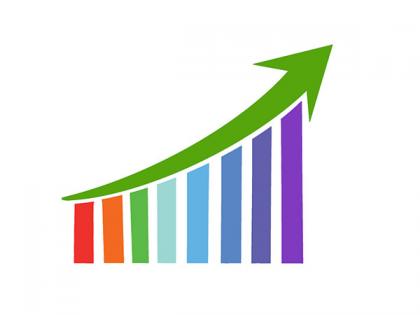Govt fiscal deficit may widen by 0.2% due to GST changes, but growth gains outweigh slippage: Report
By ANI | Updated: August 19, 2025 08:55 IST2025-08-19T08:48:51+5:302025-08-19T08:55:04+5:30
New Delhi [India], August 19 : The government's fiscal deficit could see a short-term increase due to proposed changes ...

Govt fiscal deficit may widen by 0.2% due to GST changes, but growth gains outweigh slippage: Report
New Delhi [India], August 19 : The government's fiscal deficit could see a short-term increase due to proposed changes in the Goods and Services Tax (GST) structure, but the growth boost is expected to outweigh the temporary slippage, according to a report by Emkay Research.
The report highlighted that the fiscal deficit could widen by 0.1 per cent in FY26E to 4.5 per cent and by 0.2 per cent in FY27E to 4.6 per cent. However, this widening is seen as a transient factor that would normalize within two to three years.
"The government should absorb the revenue loss through the higher deficit, as the growth accretion will cover the shortfall within 2-3 years," the report noted.
This shortfall, the report said, will be partially made up by tax buoyancy and asset sales.
The report added that the government has the numbers to push the GST changes through, but it will need to convince states, as the revenue loss could push some states beyond the 3 per cent to 3.5 per cent deficit ceiling.
The GST rationalization must be cleared by the GST Council, where the central government has a 33 per cent vote, and the remaining 67 per cent is equally split among 31 states and union territories.
All decisions require a 75 per cent weighted average majority, which means support from at least 20 of the 31 states is needed.
The report also highlighted that India's complex GST structure is a "millstone around the growth neck," and rationalization is worth the risk. Strong macro-financial stability, reflected in the recent ratings upgrade, provides a favorable environment to carry out these reforms.
Still, the research firm cautioned that GST Council approval is necessary and rates on individual categories could change in the final announcement.
Assuming no changes in expenditure, the Centre's FY26 net fiscal slippage is estimated at around 0.2 per cent of GDP, with lower tax revenues being offset by higher dividends and PSU divestment.
On the positive side, the report mentioned that the consumer inflation could ease by around 50-60 basis points over the next year.
However, the overall impact on aggregate demand will depend on the government's fiscal stance. Any reduction in capital expenditure or social sector and rural schemes could limit the demand boost.
The report concluded that the policy intent to shift to a two-tier GST structure is a welcome move, as indirect taxes are regressive in nature. While the reforms may cause short-term fiscal pressure, they are expected to support growth and simplify the tax structure in the long run.
Disclaimer: This post has been auto-published from an agency feed without any modifications to the text and has not been reviewed by an editor
Open in app